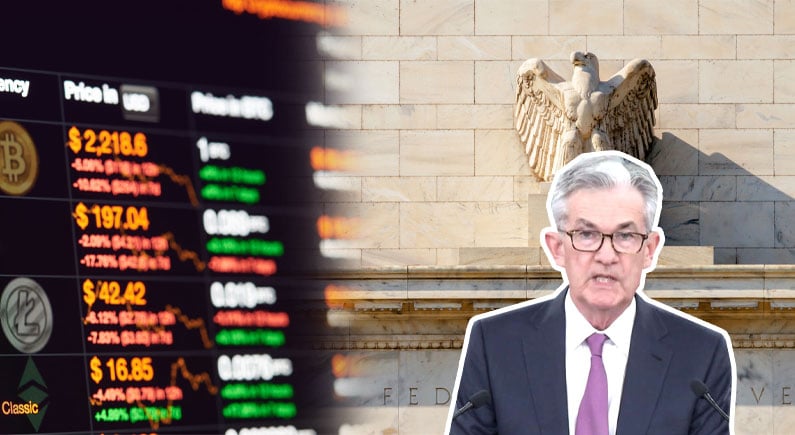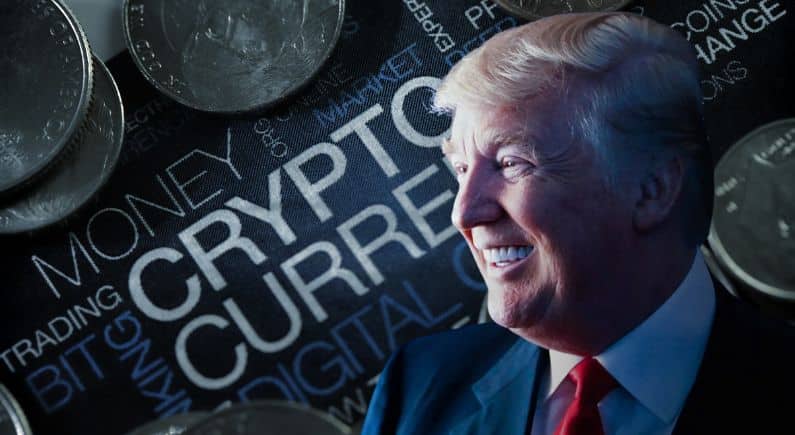Powell: Federal bank still undecided about CBDC

According to Jerome Powell, the Federal Bank Chair, there is no urgency to create a central bank digital currency
The United States Federal Reserve continues to assess chances for the introduction of a digital central bank (CBDC) for the country but states that this has not been determined yet. Powell said at a Wednesday press conference that the Federal Reserve was examining the value of developing a digital currency and expects to publish a paper on this subject.
“We are working proactively to issue a CBDC and if so, in what form,” Powell explained.
“We think it is our obligation to do the work both on public policy and technology to form a basis for making an informed decision. The ultimate test we will apply when assessing a central bank digital currency and other digital innovations is “are there clear and tangible benefits that outweigh any cost and risks”.”
Powell stated that the Fed was not hurrying to join the trend despite the fact that other central banks launched their own CBDCs, adding that they not only focus on speed, but also on getting things right, insisting that the CBDC innovation in the US wasn’t behind.
In the anti-crypto narrative promoted by global financial regulators and bureaucrats, CBDCs have been a go-to. In fact, banking behemoth HSBC has supported CBDCs against cryptocurrencies and stablecoins.
Crypto critics like Senator Elizabeth Warren in Washington argued for CBDCs to be the “legitimate digital public money” in opposition with crypto, which the Senator is known to criticise.
Earlier in September, columnist James Mackintosh claimed that “deeply negative interest rates” may be triggered by CBDCs. Fed Governor Chris Waller has argued against CBDCs’ value proposition by calling them “a solution in search of a problem.”
From Bitcoin to Ether
Bitcoin-based products are taking a backseat as Ether futures are being traded at a premium by investors, and JPMorgan has indicated that institutional investors are beginning to shake off Bitcoin futures in favour of Ether derivatives.
In a Sept. 22 note to investors, Wall Street bank analysts stated that Bitcoin futures on the Chicago Mercantile Exchange (CME) traded at a discount in September compared with BTC spot pricing.
As a result, Ethereum-based products became increasingly popular when investors switched to the second-largest crypto-asset worldwide.
According to analysts, “This is a setback for Bitcoin and a reflection of weak demand by institutional investors that tend to use regulated CME futures contracts to gain exposure to Bitcoin,” whilst also noting a “strong divergence in demand”.
The analysts have highlighted that when demand is high, BTC futures often traded on the spot markets with premium pricing because of high BTC storage costs and motivating yields for passive crypto investing.
The 21-day average ETH futures premium was, according to CME data, 1% over Ether prices on the spot markets.
JPMorgan analysts noted: “This points to much healthier demand for Ethereum vs. Bitcoin by institutional investors.”
Binance is the frontrunner for BTC future volumes, according to Skew Analytics. Users have traded $20 billion over the past 24 hours. Also in the last 24 hours, OKEx was second with $5.36 billion, with the CME trading volume at $2.34 billion. Binance is also dominant for ETH future trade volumes s of $9.7 billion per day.
As if by coincidence, JPM’s take on crypto futures came on the same day before a federal court in Manhattan saw a motion being filed which requires JPMorgan to pay Treasury futures investors $16 million for creating fake demand or “spoofing”. The action comes after the US Department of Justice fined them in September 2020 for manipulating the commodities futures markets. JP Morgan was fined $920 million in this criminal settlement.
Adopting crypto
Two trust funds based on Bitcoin and Ethereum have also been launched by Cambrian Asset Management in California. The institutional investment products give exposure, but eliminate some volatility, to the underlying assets.
The flagship crypto hedge fund of the company, which trades 50 digital assets, had gained 76% by August, compared with 62% of BTC in the first eight months of the year.
Social media platform Twitter will be allowing people to pass on tips or funds to other users using crypto.
The crypto-tip features are accessible for all iOS users internationally and they aim to develop Android alternatives in the next several weeks, according to Twitter Product Manager, Esther Crawford. The crypto option will enable users to link third-party applications to their Twitter profiles and to accept funding, depending on the country, such as Cash App, Patreon, Venmo, Chipper, Bandcamp, Razorpay, GoFundMe, PicPay and Wealthsimple Cash.
“We want everyone on Twitter to have access to pathways to get paid,” said Crawford. “Digital currencies that encourage more people to participate in the economy and help people send each other money across borders and with as little friction as possible — help us get there.”
Twitter Tips may be used via the Bitcoin (BTC) Lightning Network that delivers money via the Strike app or by adding a BTC address straight to your profile, in addition to the linked services. Crawford said that Twitter will not receive a cut.
Jack Dorsey, CEO of Twitter, has already suggested that when the social media business disclosed a “Tip Jar” approach, a BTC tipping option was built which would allow users to reward content makers efficiently. He also talked about Square’s intentions to establish a decentralised Bitcoin exchange.
Next up: Malta Week
Don’t miss out on amazing networking opportunities and exclusive industry insights at Malta Week. Four leading shows will bring the best of the business back-to-back to a first-class meeting point. Malta Week will consist of SiGMA, AIBC, Med-Tech World and AGS, each presenting the top developments of their focal industries.
The cross-collaboration of each brand makes Malta Week the number one destination for leading think-tanks of the gaming sector, emerging tech, digital health, and digital marketing. The middle of the Mediterranean is the perfect place for multi-faceted business deals and face-to-face conversations with leading affiliates, policymakers, and thought leaders.






